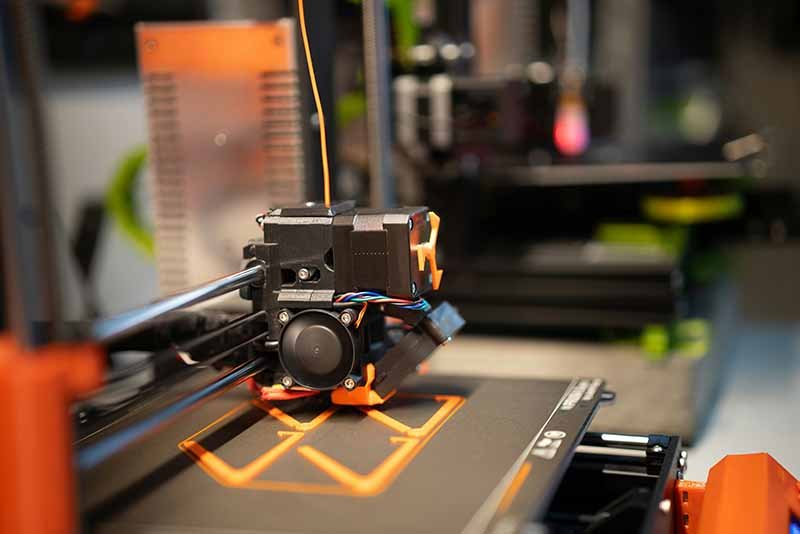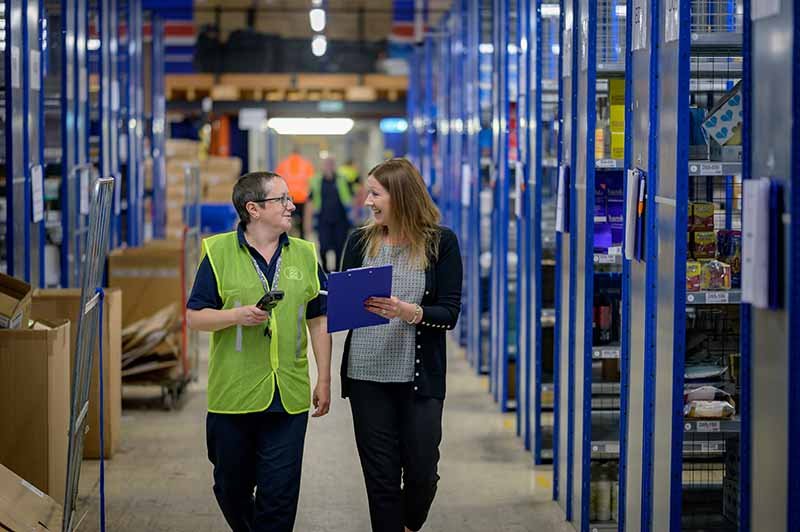When creating custom packaging, you may ask yourself: Where can I find a packaging supplier? What type of packaging supplier should I choose? Finding the right packaging partners is crucial. It ensures your products are well-protected and beautifully presented.
Packaging is often the first interaction consumers have with your brand, so it needs to make a strong impression. Whether you’re launching a new product or updating your current packaging, the right supplier can make all the difference.
This guide will not only help you explore your options but also help you understand the roles each type of supplier plays, ensuring you find reliable partners who align with your business goals.
Understanding the Packaging Supply Chain
The packaging supply chain consists of various players, each contributing to the overall process of creating and delivering packaging solutions. Understanding these roles is essential for businesses looking to optimize their packaging strategies. The key players include:
- Packaging Manufacturers
- Prototype Companies
- Packaging Brokers
- Distributors
- Design Firms
- Co-Packers
Each has its unique function and advantages, which we will explore in detail.
1. Packaging Manufacturers

Packaging manufacturers are the backbone of the packaging industry. They specialize in producing a wide range of packaging solutions tailored to specific needs across various sectors, including food, cosmetics, electronics, and more. Manufacturers can create everything from rigid boxes and folding cartons to flexible packaging.
Pros of Working with Manufacturers
- Direct Access to Custom Solutions: Manufacturers can create bespoke packaging designs that align with your brand and product requirements.
- Better Quality Control: Working directly with manufacturers allows for closer oversight of production processes and quality assurance.
- Scalability: Manufacturers can adjust production volumes based on your business needs, accommodating both small and large orders.
Where to Find Manufacturers
- Online Search: A simple online search can yield numerous professional manufacturers’ websites, in addition to directories like ThomasNet and Maker’s Row.
- Industry Trade Shows: Attending trade shows provides an opportunity to meet manufacturers and see their products firsthand.
- Networking: Engaging with industry associations can lead to valuable connections with reputable manufacturers.
When collaborating with manufacturers, it’s crucial to communicate your specific requirements clearly, including details about materials, sizes, and branding elements. A well-defined project brief can significantly enhance the efficiency of the manufacturing process. BrillPack offers tailored manufacturing solutions—contact us with your unique business needs.
2. Prototype Companies

Prototype companies focus on creating samples and mock-ups of packaging designs. This step is crucial in the packaging development process, allowing businesses to visualize and test concepts before committing to mass production.
Pros of Working with Prototype Companies
- Early Identification of Design Flaws: Prototyping helps identify potential issues in design and functionality before full-scale production begins.
- Enhanced Collaboration: Prototype companies facilitate better communication between brands and designers, ensuring that the final product aligns with expectations.
- Cost Savings: By preventing costly production mistakes, prototyping can save businesses money in the long run.
Where to Find Prototype Services
- Online Search: A simple search for local prototype firms can yield numerous options.
- Referrals: Asking industry contacts or design professionals for recommendations can lead to reputable prototype companies.
- Freelance Platforms: Websites like Upwork or Fiverr can connect businesses with freelance prototyping services.
When seeking prototypes, consider the level of detail you need. Some companies may offer basic prototypes, while others provide high-fidelity models that closely resemble the final product.
3. Packaging Brokers

Packaging brokers act as intermediaries between businesses and packaging suppliers. They leverage their industry knowledge to connect companies with the right packaging solutions, facilitating a smoother procurement process.
Pros of Working with Brokers
- Access to a Wide Range of Solutions: Brokers can provide options from multiple suppliers, giving businesses more choices.
- Expertise in Negotiation: Brokers often have established relationships with suppliers, allowing them to negotiate better pricing and terms on behalf of their clients.
- Streamlined Communication: Brokers handle all supplier interactions, simplifying the procurement process for businesses.
Where to Find Brokers
- Online Search: Look for packaging brokerage firms that specialize in your industry.
- Networking Events: Industry events and conferences can be great places to meet brokers.
- Referrals: Recommendations from other businesses can lead to trusted brokers.
When working with brokers, be clear about your budget and timeline. A good broker will help you find the best options within your constraints.
4. Packaging Distributors

Packaging distributors are responsible for sourcing, stocking, and distributing a variety of packaging materials and products. They serve as a one-stop shop for businesses looking for packaging solutions.
Pros of Working with Distributors
- Diverse Product Range: Distributors offer a wide selection of packaging products from various manufacturers, making it easier to find what you need.
- Technical Expertise: Many distributors provide guidance on packaging solutions, helping businesses choose the right products for their needs.
- Efficient Logistics: Distributors manage inventory and logistics, ensuring timely delivery of materials.
Where to Find Distributors
- Online Search: Industry directories and online marketplaces often list packaging distributors.
- Trade Shows: Attending trade shows can help you discover distributors and their offerings.
- Peer Recommendations: Networking with peers in your industry can lead to valuable distributor contacts.
If you require stock packaging, consider the volume you need, as distributors often have minimum order quantities.
5. Packaging Design or Marketing Firms

Packaging design firms specialize in creating visually appealing and functional packaging that enhances brand identity and engages consumers. They play a critical role in the overall success of a product.
Pros of Working with Design Firms
- Expertise in Branding: Design firms understand consumer psychology and can create packaging that resonates with target audiences.
- Comprehensive Services: Many design firms offer end-to-end services, from concept development to final execution.
- Unique Solutions: Design firms can provide innovative packaging designs that set your products apart from competitors.
Where to Find Design Firms
- Online Portfolios: Platforms like Behance and Dribbble showcase the work of various design firms.
- Referrals: Marketing professionals can often recommend reputable design firms.
- Networking: Attending design and marketing conferences can help you connect with potential design partners.
When collaborating with design firms, provide them with as much information as possible about your brand and target audience.
6. Packaging Fulfillment / Co-Packer Companies

Co-packing companies provide packaging and fulfillment services, allowing businesses to outsource their packaging processes. This can streamline operations and reduce costs.
Pros of Working with Co-Packers
- Cost Savings: Co-packers can offer economies of scale, reducing packaging costs for businesses.
- Flexibility: They can accommodate varying production volumes, making it easier for businesses to scale operations.
- Reduced In-House Burden: Outsourcing packaging allows businesses to focus on core operations while leaving packaging to the experts.
Where to Find Co-Packing Services
- Online Search: Look for co-packing companies that specialize in your industry.
- Industry Referrals: Networking within your industry can lead to recommendations for reliable co-packers.
- Trade Shows: Attending packaging and fulfillment trade shows can help you discover co-packing options.
When selecting a co-packer, consider their experience with your product type.
How to Choose the Right Packaging Supplier Role
Assess Your Packaging Needs
Before selecting a packaging supplier, carefully assess your specific requirements. Consider factors such as product type, packaging materials, design preferences, production volumes, and budget. Understanding your needs will help you determine which type of supplier is best suited for your business.
Evaluate Supplier Capabilities
Once you’ve identified your needs, evaluate the capabilities of potential suppliers. Consider their expertise, experience, and the range of services they offer. Look for suppliers who have a proven track record in your industry and can meet your specific requirements.
Prioritize Quality and Reliability
When choosing a packaging supplier, prioritize quality and reliability over cost. While pricing is important, it should not be the sole deciding factor. Look for suppliers who consistently deliver high-quality products and services, and have a reputation for reliability and customer satisfaction.
Build Relationships
Establishing strong relationships with packaging suppliers can lead to long-term success. Focus on finding partners that align with your business goals and values. Open communication and collaboration will help foster these relationships and ensure that your packaging needs are met effectively.
Conclusion
Finding reliable packaging suppliers is essential for businesses looking to enhance their products and brand identity. By understanding the various roles within the packaging supply chain and evaluating your specific needs, you can make informed decisions about which suppliers to partner with.
Ready to elevate your packaging strategy? Contact BrillPack today to explore our customized packaging solutions and how we can support your business needs.
Contact for a Free Consultation!

